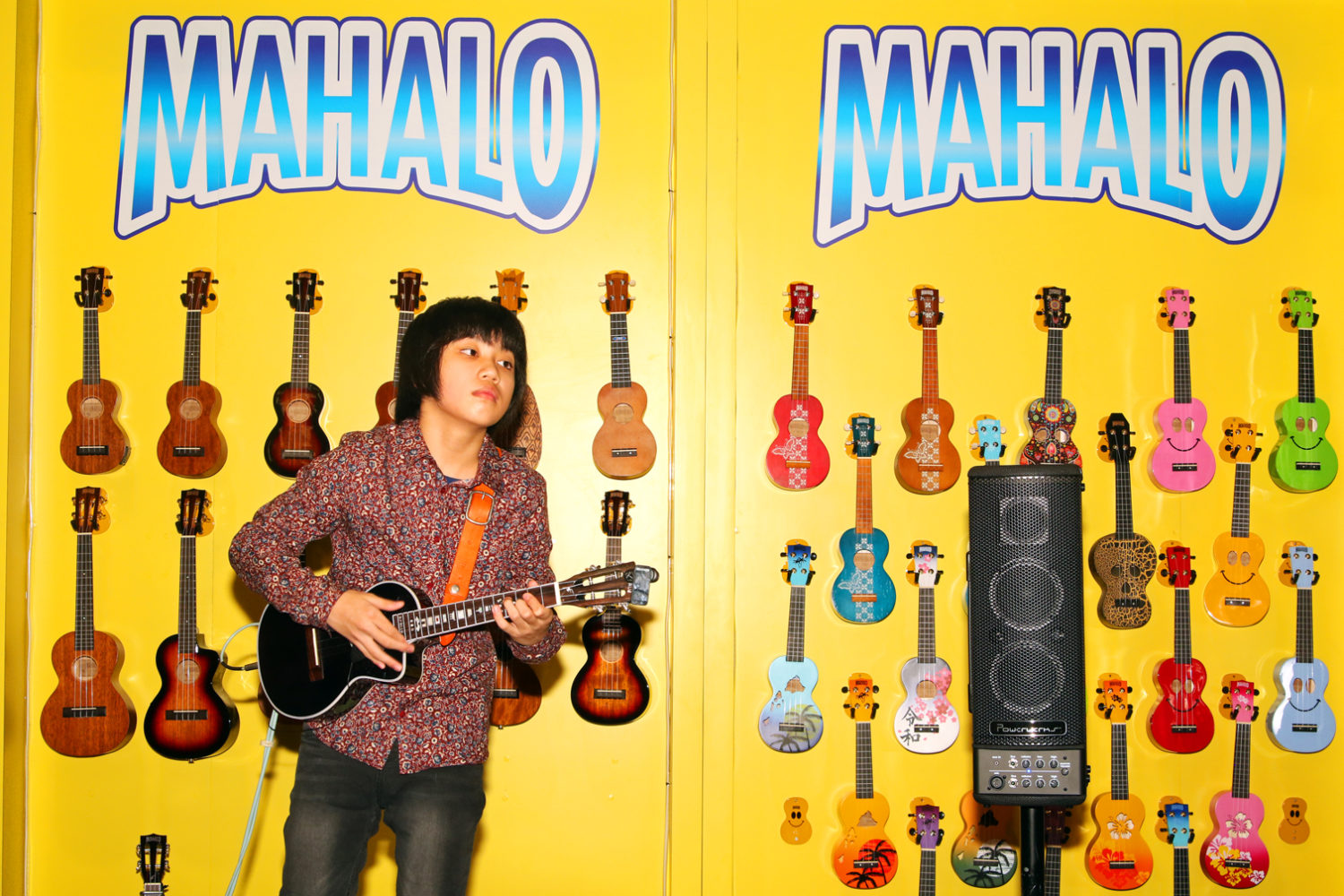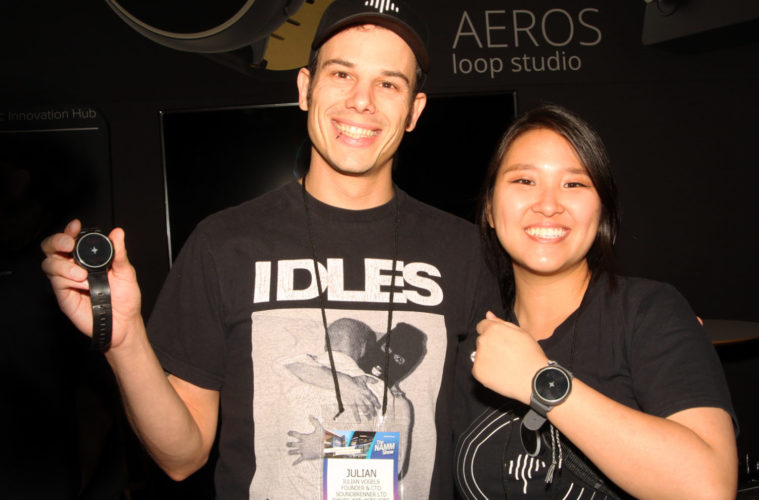Where to begin this year? For those who have never attended the National Association of Music Merchants (NAMM), it is an enormous convention that is well over 100 years old. Since 1976, NAMM has been operating with varying regularity in Anaheim. The convention is promoted as “the world’s largest trade-only event for the music products, pro audio and event tech industry,” and there is simply no way to experience everything that it has to offer during its annual four-day run. This year, those four days spanned the dates of January 16 through January 19, and in that time, this writer experienced his third annual instance of musical sensory overload.
The sprawling trade show’s various components occupied the entirety of the Anaheim Convention Center and its grounds as well as a significant amount of space at the adjacent Marriott, Hilton and Sheraton Park hotels. Among that real estate, those components principally included: classrooms and seminars, live performances, meeting rooms and an enormous exhibition floor — as well as several peripheral exhibition areas.

NAMM (Scott Feinblatt)
The convention’s interactive app allowed guests to sift through the programming schedule and flag the events they were interested in attending as a means to minimize the potential for sensory overload. This year, I targeted some of the classroom sessions for DIY musicians wishing to learn more about the tools and platforms for self or partnered distribution. Though I attended a few of them, my favorite was “How to Prepare Your Music for a Successful Release,” which was presented by Kevin Breuner, musician and vice president of marketing for CD Baby.
Breuner provided a charismatic presentation, which began with his background as a member of the Atlanta-based band Smalltown Poets, whose eponymous first album, from 1997, received critical acclaim, sold over 200,000 copies, and received Grammy and Dove Award nominations. Despite that success, due to the structure of a seemingly legit record contract, Breuner said he still had to beg lunch money from friends. After endearing himself to the crowd with his testimony of street credibility, he transitioned into his pitch.
He did a great job laying out the dynamics of the industry for the self-producing/self-distributing artist, with information about the various current and soon-to-be available company platforms for artists (Amazon, YouTube, Apple Music, etc.), functional distinctions about different platforms (especially in terms of merchandising), the importance of examining data, where to get free cover artwork templates (canva.com) and common cover art mistakes, and strategies about advance planning for releases (get bloggers and podcasters to review it, prepare promos, etc.).
Naturally, all of this useful information was geared toward setting up a free account with CD Baby, for online distribution, and while the presentation left the crowd with a very satisfied feeling about the company, it is not my job to endorse it. In fact, a post-convention internet search revealed that attitudes from the musicians who have used it are mixed. On paper, everything sounds pretty solid — for digital sales, they take a standard 15 percent distribution fee, and they take a 40 percent commission on sync licenses — and some of the complaints I read sound like they were the result of unique circumstances (complications of distribution due to the artist’s use of copyrighted samples, etc.), so if you’re a musician looking for a company that will help you navigate your way through getting onto Spotify, iTunes, etc., they are definitely worth taking a look at. However, if you’d like to compare their platform with others to find out which is best for you, you may also want to check out competitors such as TuneCore and DistroKid.
After schooling, I lost myself in the main exhibition area, which consisted of four enormous halls at the convention center. It was in this place that attendant retailers, designers, performers, executives, models and fans could gravitate toward strategic showroom destinations and/or wander about like children lost at a grand carnival. While all sorts of vendors were sprinkled throughout the venue, some areas were localized to highlight specific types of products. There were stations/areas for players of drums, modular synthesizers, brass instruments, etc. There were also areas which featured a predominance of DJ equipment, lighting gear, toggle switches and flashing lights for electronics engineers, etc.

NAMM (Scott Feinblatt)
Wanderers were routinely pitched on various types of products, encouraged to enter free giveaway contests or entertained by an impressive cross section of artists. Two of my favorites included a precocious youth named Feng E (Golden Buzzer, Asia’s Got Talent), who rocked out at the Mahalo ukulele booth, and internationally renowned guitarist Adrian Bellue, who demonstrated his amazing playing style at the Furch guitar booth (technically not located in the main showcase hall). There were also museum-type installments throughout the show floor and beyond, which featured rare and custom instruments, as well as photographs and original music-themed artwork.
One of the neater toys that I discovered in my meanderings was a folding guitar called The Ascender by Ciari Guitars. While this beauty retails for $3,000, it distinguishes itself from competitors by means of its simple transition from folded to playable with one pull of a lever. Several designer, in-ear monitors from a number of companies also caught my eye. And then there were the multi-faceted musician’s watches by Soundbrenner; these handy gadgets (ranging from $99-$229) perform functions such as contact tuning, vibrating with metronome clicks, dB metering and of course serving as a multipurpose watch.
That’s my 2020 NAMM experience in a nutshell. Obviously, plenty more went on throughout the convention, including after hours parties, networking, various stage performances, and an awards show. For a complete list of the numerous winners in various categories of competition, check out their website. Beyond that, it is always a grand experience to attend this trade show, and — to borrow the slogan of recently closed Johnson Smith Company — whether attendees are there for fun or business, most everyone is likely to wind up leaving with the knowledge of items they never knew existed and can’t possibly live without.

NAMM (Scott Feinblatt)
Advertising disclosure: We may receive compensation for some of the links in our stories. Thank you for supporting Irvine Weekly and our advertisers.

